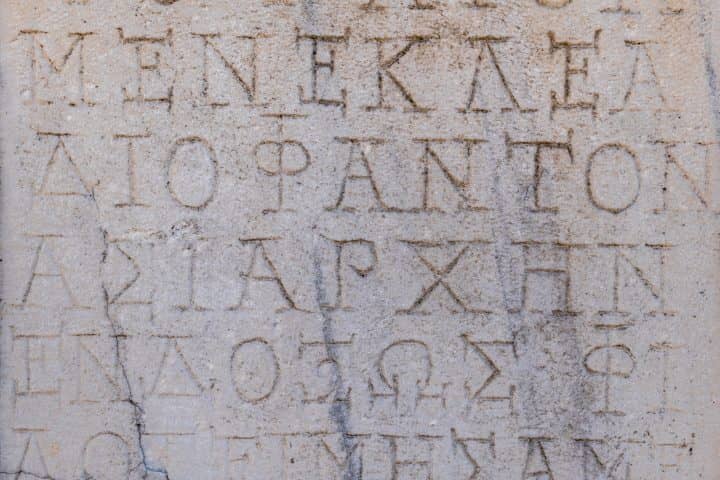 The Greeks were not among the earliest to develop written languages, though their oral traditions were comparatively widespread and diverse. The earliest written text is from the eighth century BC, in an inscription on a clay tablet found on Boeotia in Greece.
The Greeks were not among the earliest to develop written languages, though their oral traditions were comparatively widespread and diverse. The earliest written text is from the eighth century BC, in an inscription on a clay tablet found on Boeotia in Greece.
This ancient fragment of text is discussed as Proto-Greek (the language as spoken before it was recorded), but it is still being determined whether this was a language or if it can be considered Greek. It’s only known by name, and there are no texts or translations of the inscription.
What is Proto Greek?
The Greeks began to develop their distinct language, written in the Greek alphabet and known as the Porto-Greek language (also known as Ancient Greek), starting in the 11th century BC. The language of Homer’s time is called Classical Greek and was used for poetry and prose until about 300 AD. From this point on, the spoken and written languages diverged somewhat; the spoken language developed into what we now think of as ancient Greek.
Written Ancient Greek became more formalized, with texts composed using a more rigid structure. This period saw incredible cultural growth in Ancient Greece, including a Golden Age in philosophy and literature from approximately 500-300 BC.
Decline of Ancient Greek
The Ancient Greek language sharply declined in the fourth century AD, mainly because of invading Romans, war, and disease. The Roman Empire was divided into East and West in 395 AD. Since then, the two halves of the empire split into separate languages that would become what we now know as Slavic and Romance languages. Classical Greek was not widely read during this time. However, it continued to be used for religious purposes and was studied by scholars who wanted to understand how Greek culture developed. Classical Greek is still used today; it has never really gone out of use since its inception.
In the ninth century AD, Greek works were translated into Latin for the first time. It resulted from the rise of Christianity in Rome and the desire to understand early Christian writings. The Bible and other texts written in Greek were translated into Latin, and it would not be long before ancient Greek works written in Classical Greek began to be translated as well.
Modern Uses of Ancient Greek
Ancient Greek exists today in many different forms: the Classical language from which modern languages evolved, Modern or Koine, which is spoken all over Greece (the portion of Greece not occupied by Turkey), and spoken languages throughout the world that descended from Medieval or Renaissance Greek. Modern Greek is the official language of Greece and Cyprus, along with Romanian and Russian.
Although Ancient Greek is no longer being used, enough evidence of the language has survived in order for it to be studied on a regular basis. It is important to keep this evidence of the past, and it is a good way to help us understand the Ancient Greeks.
Source:

